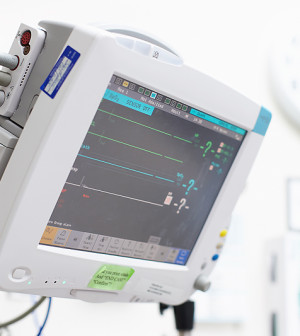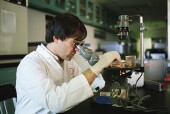- 8 Ways to Increase Dopamine Naturally
- 7 Best Breads for Maintaining Stable Blood Sugar
- Gelatin vs. Collagen: Which is Best for Skin, Nails, and Joints?
- The Long-Term Effects of Daily Turmeric Supplements on Liver Health
- Could Your Grocery Store Meat Be Causing Recurring UTIs?
- Are You Making This Expensive Thermostat Error This Winter?
- Recognizing the Signs of Hypothyroidism
- 10 Strategies to Overcome Insomnia
- Could Artificial Sweeteners Be Aging the Brain Faster?
- Techniques for Soothing Your Nervous System
Blood Pressure Drug Might Boost Chemo Success, Mouse Study Suggests


TUESDAY, Oct. 1A blood pressure drug shows promise in improving the effectiveness of cancer chemotherapy, according to a new study.
In tests on mice with breast and pancreatic cancer, researchers found that treatment with losartan (brand name Cozaar) boosted the delivery of chemotherapy drugs by opening up collapsed blood vessels in solid tumors.
This slowed the growth of the tumors and extended the lives of the mice, the researchers report online Oct. 1 in the journal Nature Communications.
Based on their findings, the Massachusetts General Hospital team has launched a clinical trial to determine if losartan can improve chemotherapy treatment results in human patients with pancreatic cancer.
Losartan belongs to a family of well-established blood pressure drugs called angiotensin inhibitors.
“Angiotensin inhibitors are safe blood pressure medications that have been used for over a decade in patients and could be repurposed for cancer treatment,” study senior author Rakesh Jain, director of the Steele Laboratory for Tumor Biology at MGH, said in a hospital news release.
“Unlike anti-angiogenesis drugs, which improve tumor blood flow by repairing the abnormal structure of tumor blood vessels, angiotensin inhibitors open up those vessels by releasing physical forces that are applied to tumor blood vessels when the gel-like matrix surrounding them expands with tumor growth,” Jain explained.
“Increasing tumor blood flow in the absence of anti-cancer drugs might actually accelerate tumor growth, but we believe that combining increased blood flow with chemotherapy, radiation therapy or immunotherapy will have beneficial results,” said Jain, a professor of radiation oncology at Harvard Medical School.
Researchers note that studies involving animals often fail to produce similar results in humans.
More information
The American Cancer Society has more about chemotherapy.
Source: HealthDay
Copyright © 2026 HealthDay. All rights reserved.










